
Welcome to our ultimate guide on wood moisture meters, the essential tools for every woodworker and DIY enthusiast! In this comprehensive review, we’ll dive deep into the world of moisture detection, exploring the best devices that ensure your woodworking projects stand the test of time.
Whether you’re a seasoned carpenter or a hobbyist, understanding wood moisture content is crucial 💧. It affects everything from the stability of your furniture to the longevity of your constructions. That’s why we’ve meticulously tested and compared the top performers in the market.
Our selection covers a range of features, from pinless technology to deep penetration capabilities, ensuring there’s a perfect fit for every need and budget. We’ll guide you through the pros and cons, helping you make an informed decision 🧠.
So, let’s embark on this journey to discover the best 5 wood moisture meters of 2024, and elevate your woodworking game to new heights! 🌟
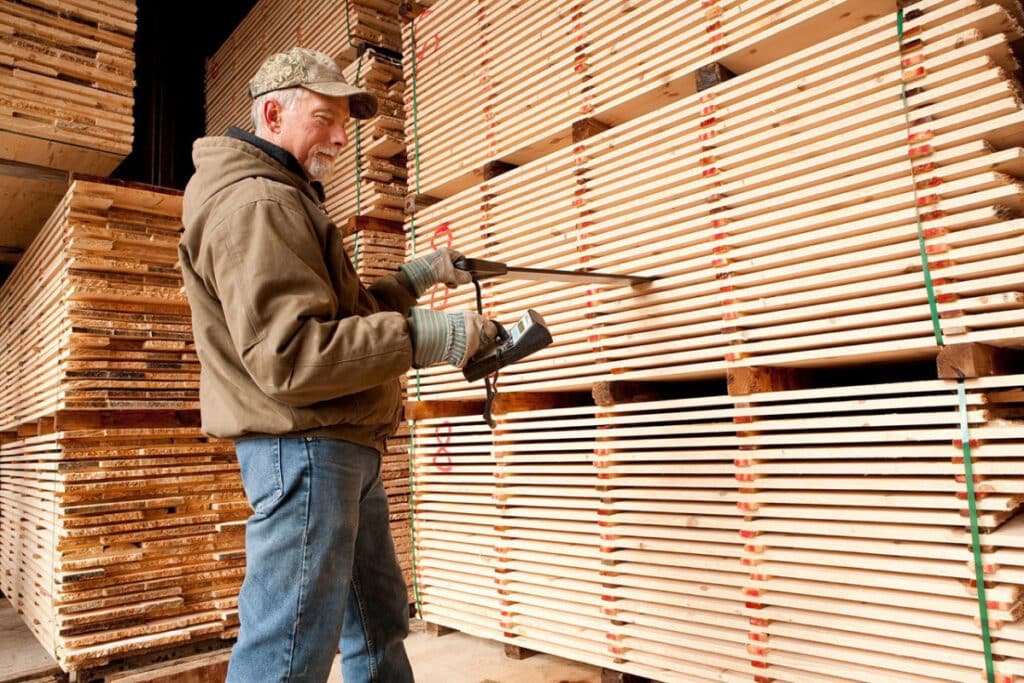
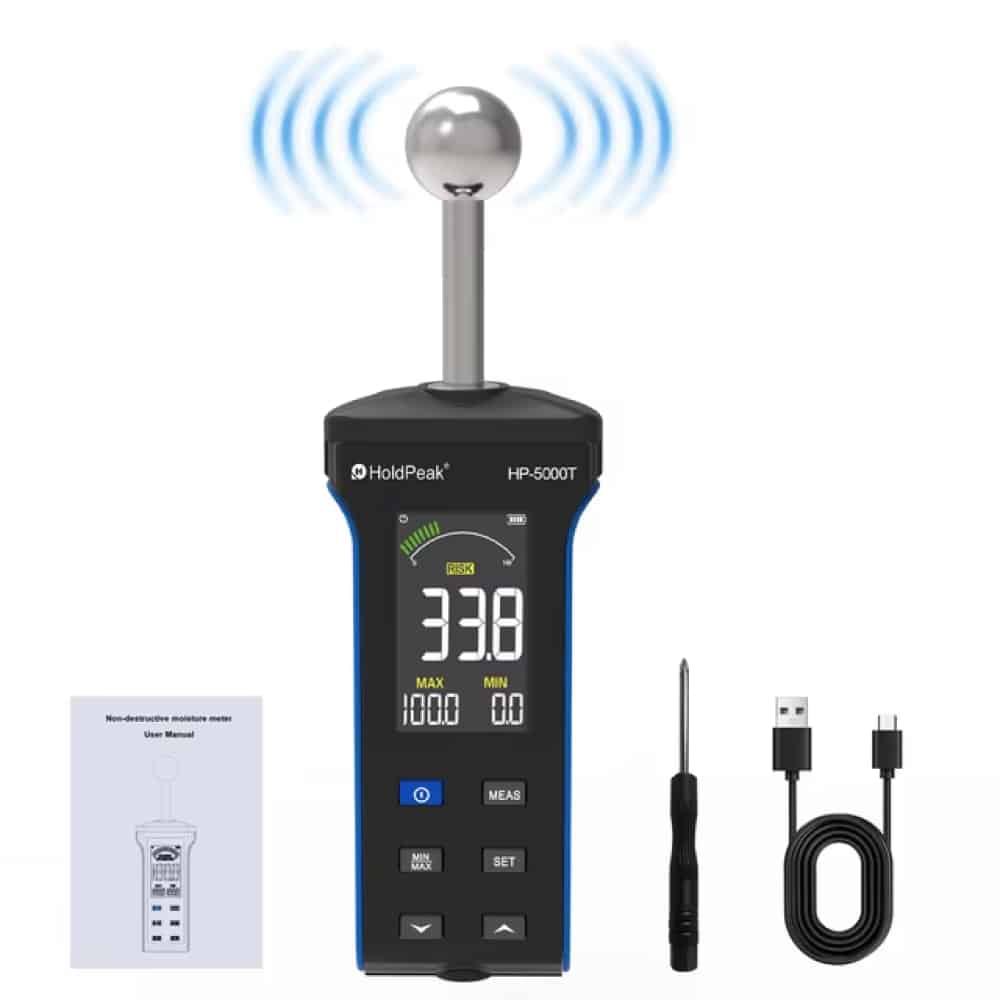
Overall Rating:
GENERAL VIEW
The Moiscker Wood Moisture Meter stands out as the top choice for professionals and enthusiasts alike. This innovative device combines cutting-edge technology with user-friendly features, making it a game-changer in moisture detection.
What sets the Moiscker apart is its advanced non-contact technology 📡. Using state-of-the-art spherical sensor technology, it provides accurate, non-destructive moisture readings for various materials. This means you can confidently measure moisture levels without damaging your precious wood surfaces.
With a maximum penetration depth of 20mm-40mm, this meter is incredibly versatile 🔧. It’s not just for wood; it’s equally effective on concrete, flooring, walls, and other building materials. This makes it an indispensable tool for construction projects, renovations, and everyday woodworking tasks.
One of the Moiscker’s standout features is its ability to prevent moisture damage 🛡️. By detecting moisture in insulated areas and brick walls, it helps you avoid issues like corrosion, mold, rot, and paint peeling. This proactive approach can save you significant time and money in the long run.
PROS
CONS
THE RESULT
The Moiscker Wood Moisture Meter is a top-tier choice for its accuracy, versatility, and damage prevention capabilities. It’s an investment in quality and precision for any woodworking project. EXPLORE NOW!
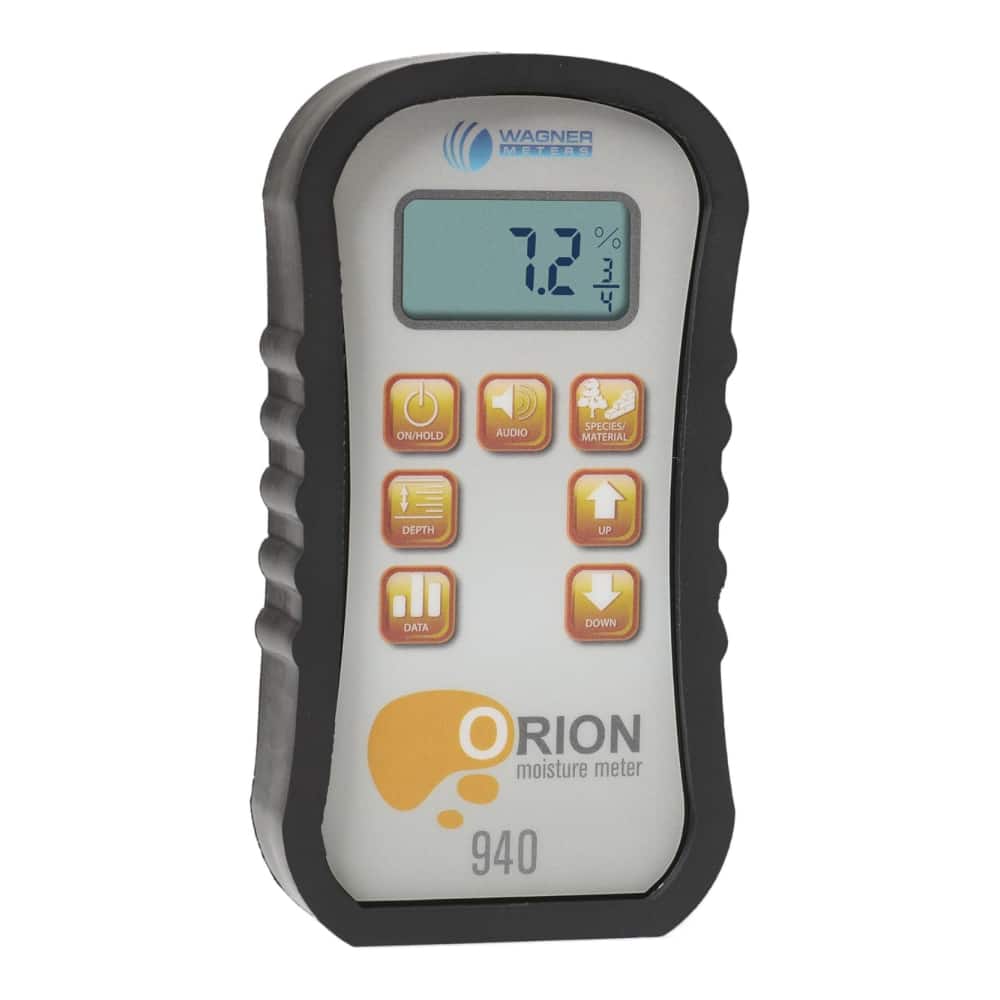
Overall Rating:
GENERAL VIEW
The Wagner Wood Moisture Meter offers a compelling alternative for those seeking professional-grade accuracy. This device stands out with its dual-depth measurement capability, allowing users to assess moisture at both ¼” and ¾” depths.
One of the Wagner’s key features is its IntelliSense Technology, which ensures accurate readings regardless of surface temperature. This makes it particularly useful in varying environmental conditions, providing consistent results across different wood types.
The meter also boasts impressive data collection and storage capabilities. Users can automatically collect and store moisture data, with viewable moisture stats for easy tracking and analysis. This feature is invaluable for long-term projects or when maintaining consistent moisture levels is crucial.
Additionally, the Wagner offers a relative measurement mode for non-solid wood applications, expanding its versatility to engineered wood, drywall, and other materials. Its on-demand calibrator ensures the meter maintains its precision without the need for factory recalibration.
PROS
CONS
Overall Rating:
GENERAL VIEW
The Ligno-Scanner D offers a specialized approach to moisture measurement with its pinless technology. This device is particularly noted for its 3/4″ measuring depth, providing insights into moisture levels deeper within wood structures.
A standout feature of the Ligno-Scanner D is its extensive wood group settings. With 71 preset options and the ability to set specific gravity between 0.3 to 1.0, it offers unparalleled customization for different wood types. This level of specificity ensures accurate readings across a wide range of wood species.
Lignomat’s unique measuring technology for pinless moisture meters is at the heart of this device. It guarantees calibration accuracy, reliability, and consistency over time. Users can trust that the Ligno-Scanner D will produce the same accurate moisture values today, tomorrow, and years down the line.
The device’s operation is notably user-friendly, with clearly marked buttons and a large display. It not only shows moisture percentages but also indicates settings for wood species and measuring depth, making it easy to use even for those new to moisture metering.
PROS
CONS
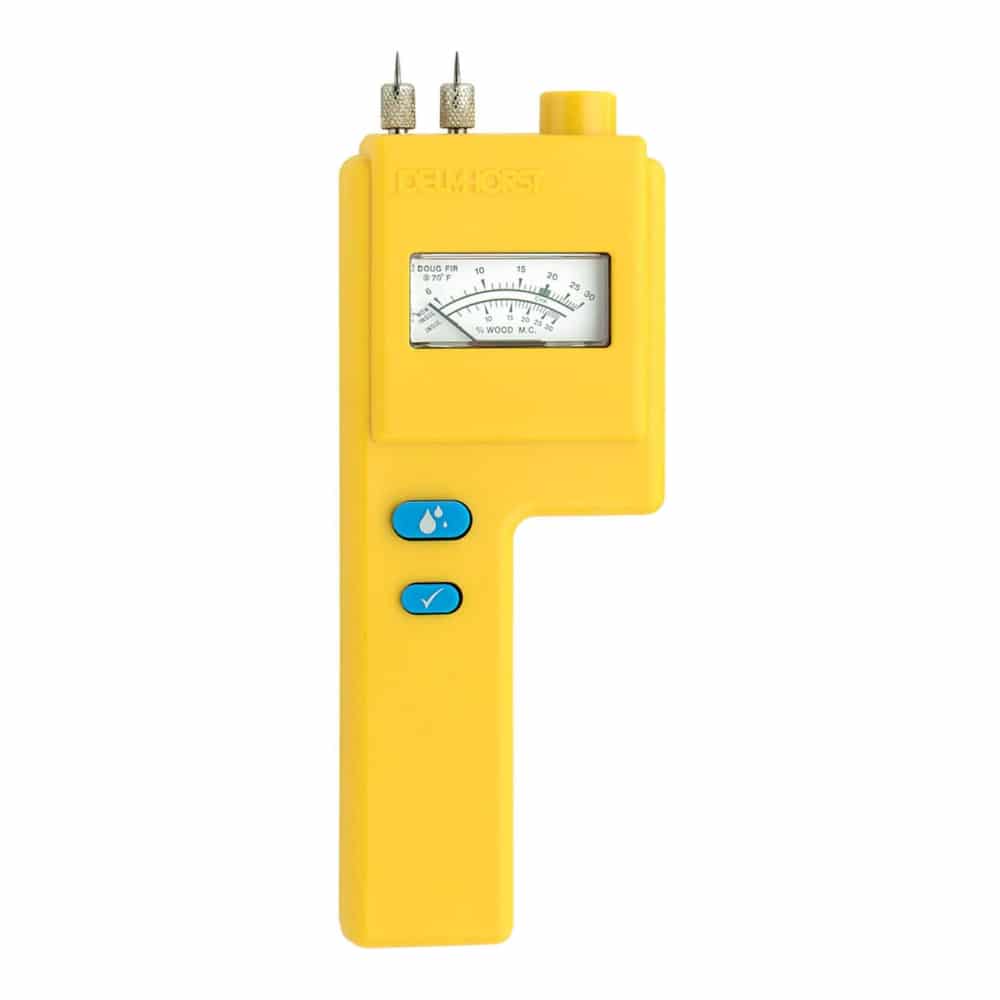
Overall Rating:
GENERAL VIEW
The Delmhorst J-4 stands out as a robust, analog pin-type meter suitable for measuring moisture in wood and other building materials. Its traditional design appeals to those who prefer a no-frills, straightforward approach to moisture measurement.
One of the Delmhorst’s strengths is its accuracy in standard conditions. It performed exceptionally well in controlled tests, providing reliable readings for a variety of wood types. However, it’s worth noting that its accuracy can be affected by surface moisture, which is a common limitation of pin-type meters.
The device offers versatility through its optional slide hammer accessory, allowing for measurements at various depths. This feature is particularly useful for thicker wood pieces, where moisture content can vary significantly from surface to core.
While the Delmhorst excels in durability and basic functionality, it does require manual adjustments for temperature and species using correction tables. This might be seen as a drawback for those seeking more automated solutions, but it offers a level of control that some professionals prefer.
PROS
CONS
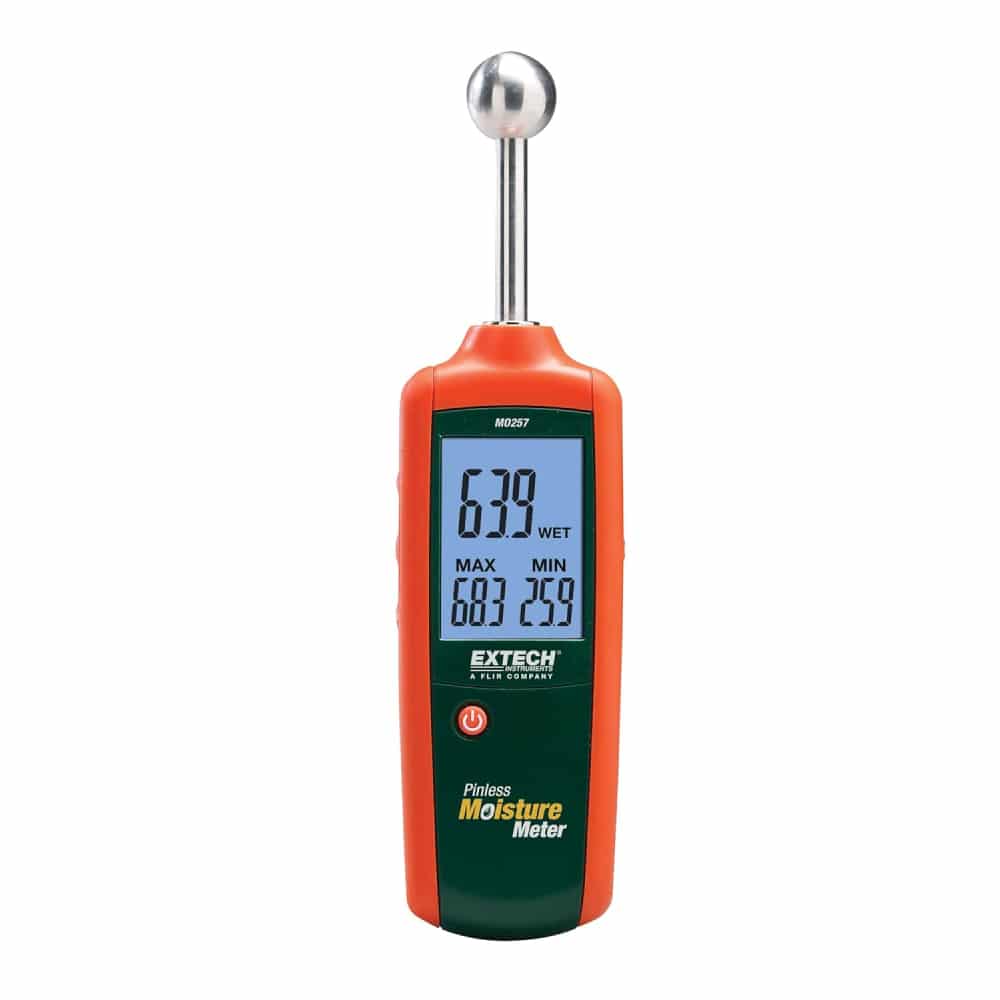
Overall Rating:
OVERALL ANALYSIS
The EXTECH Moisture Meter offers a blend of modern technology and versatile functionality. Its non-invasive measurement capability sets it apart, allowing users to assess moisture content in wood and various building materials without causing damage.
A key feature of the EXTECH is its relative pinless moisture reading, which ranges from 0.0 to 100.0 with a precise 0.1 resolution. This wide range and high accuracy make it suitable for a broad spectrum of moisture detection needs, from minor dampness to severe water damage.
The device boasts a multifunction backlit triple LCD display, enhancing readability in various lighting conditions. This feature, combined with its pinless measurement depth of 0.78 to 1.6 inches, makes it a versatile tool for both surface and sub-surface moisture detection.
EXTECH’s use of high-frequency sensing technology ensures reliable readings across different materials. However, it’s worth noting that while this technology is advanced, it may require some practice to master, especially for users transitioning from traditional pin-type meters.
PROS
CONS
A wood moisture meter is a specialized tool designed to measure the moisture content in wood and other building materials. It’s an essential instrument for woodworkers, contractors, and DIY enthusiasts, helping to ensure the quality and longevity of wood projects.
These devices work by either inserting pins into the wood (pin-type meters) or using electromagnetic waves (pinless meters) to detect moisture levels. They provide quick, accurate readings that are crucial for determining if wood is ready for use, treatment, or finishing.
Wood moisture meters come in various types, from basic analog models to advanced digital versions with multiple features. They help prevent issues like warping, cracking, and mold growth by ensuring wood is at the proper moisture level before use.
Look for meters with high precision, typically within ±0.1% for professional use. Higher accuracy ensures reliable readings for critical projects.
Choose a meter with a range suitable for your needs, typically 5-30% for wood. Wider ranges are beneficial for diverse materials.
Decide between pin-type (invasive but often more accurate) and pinless (non-destructive but may be less precise) meters. Consider your specific application.
For thicker materials, select meters with adjustable or deeper measurement capabilities. This is crucial for assessing moisture beyond the surface.
Opt for meters with easy calibration features to maintain accuracy over time. Some offer built-in calibration checks.
Consider extras like data logging, temperature compensation, and material-specific settings. These can enhance versatility and ease of use.
Choose robust models that can withstand job site conditions. Look for water-resistant or rugged designs for outdoor use.
Avoid meters with poor accuracy or those lacking proper calibration features. Inaccurate readings can lead to costly mistakes in woodworking projects.
Steer clear of meters that only work on a narrow range of materials. Versatility is key for diverse applications.
Don’t choose meters made with flimsy materials. Durability is crucial for long-term reliability and performance in various environments.
Avoid brands with poor customer service or limited warranty options. Good support is essential for troubleshooting and maintenance.
Skip meters with complex or unintuitive controls. User-friendly designs ensure efficient and error-free operation.

After years of dedicated research and evaluation of useful gadgets and tech devices, Adam has amassed considerable expertise. Explore his extensive knowledge and insights in our prestigious Top 5 Reviews series.

© BestPickInsider 2021 – 2025
-50%
Offer ends in